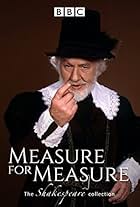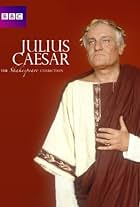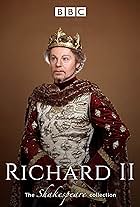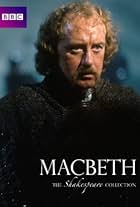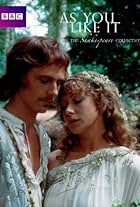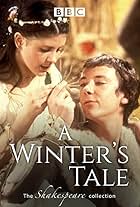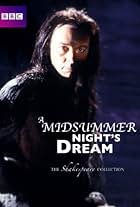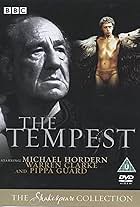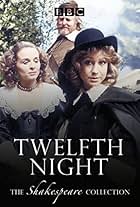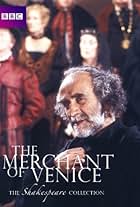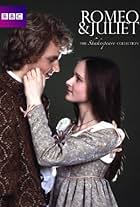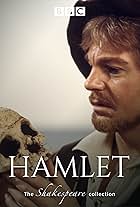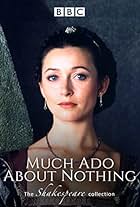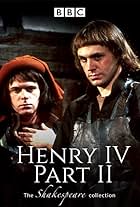mhk11
Joined Oct 2010
Welcome to the new profile
We're still working on updating some profile features. To see the badges, ratings breakdowns, and polls for this profile, please go to the previous version.
Ratings18
mhk11's rating
Reviews19
mhk11's rating
Among the Shakespearean comedies known as the "problem plays," MEASURE FOR MEASURE is especially problematic. The sumptuous language is glorious (albeit intermittently opaque), but the characterization is troubling. Though the Duke is clearly presented as a character to be assessed favorably, his devious manipulation of the other characters and his presumptuousness in his closing interaction with Isabella are disturbing.
Still, this production is superb. The acting is impeccable throughout, with an especially riveting performance by Kate Nelligan as Isabella and with very strong performances by Christopher Strauli as Claudio, Tim Pigott-Smith as Angelo, John McEnery as Lucio, Frank Middlemass as Pompey, Jacqueline Pearce as Mariana, Kevin Stoney as Escalus, Alun Armstrong as the Provost, Ellis Jones as Elbow, and Yolande Palfrey as Juliet. Kenneth Colley in the central role as the Duke is also impressive, though he sometimes moves or positions his body quite curiously.
The sets are fine, and the generally dark lighting (until the final scene) befits the ethical atmosphere of Vienna. The very short fifth scene of Act IV is undamagingly omitted, and there is some modest trimming elsewhere; but the vast majority of the lines are delivered uncut. The BBC performed a great public service with this production.
Still, this production is superb. The acting is impeccable throughout, with an especially riveting performance by Kate Nelligan as Isabella and with very strong performances by Christopher Strauli as Claudio, Tim Pigott-Smith as Angelo, John McEnery as Lucio, Frank Middlemass as Pompey, Jacqueline Pearce as Mariana, Kevin Stoney as Escalus, Alun Armstrong as the Provost, Ellis Jones as Elbow, and Yolande Palfrey as Juliet. Kenneth Colley in the central role as the Duke is also impressive, though he sometimes moves or positions his body quite curiously.
The sets are fine, and the generally dark lighting (until the final scene) befits the ethical atmosphere of Vienna. The very short fifth scene of Act IV is undamagingly omitted, and there is some modest trimming elsewhere; but the vast majority of the lines are delivered uncut. The BBC performed a great public service with this production.
The sets and the crowd scenes are generally well handled, but they are not what elicit a rating of 9 stars from me. Rather, the quality of the acting is what makes this production of "Julius Caesar" so commendable.
Richard Pasco is especially powerful as Brutus, with a performance that goes astray in only a couple of small respects. Near the end of Act IV, Pasco as Brutus is too rough and imperious in his interaction with Claudius and Varro; the text of the play suggests to me that Brutus was being solicitous rather than overbearing in his instructions to those subordinates. In addition, the death of Brutus was not quite as persuasively staged as the death of Cassius. Still, those two minor blemishes do not detract from a performance that splendidly captures the depths of one of Shakespeare's most complicated characters.
Having mentioned Cassius, I should straightaway commend David Collings for an excellent performance that captures the nuances of the character. Collings is certainly high-strung at times, but he is thereby conveying accurately the personality of Cassius as Shakespeare depicts it. From beginning to end, Collings combines subtlety and energy in a memorable display of fine acting.
Sam Dastor is engagingly witty in his portrayal of Casca (a character who disappears from the play after the assassination of Caesar), and Alexander Davion is adept as Decius Brutus whose expostulations with Caesar play a small but pivotal part in the unfolding of the play's events.
Keith Michell is generally impressive as Marc Antony. He begins in the mode of an Australian playboy who then rapidly matures into the desolate follower of a murdered master. His delivery of the "Friends, Romans, countrymen" oration is deft, and his performance in the second half of the play captures well both the valor and the arrogance of Antony. My one criticism is that the voice-over of the "O, pardon me, thou bleeding piece of earth" soliloquy does not work well. Though voice-overs are elsewhere used to good effect in this production, the soliloquy just mentioned should have been spoken throughout. During the voice-over, Michell looks as though he is bursting to speak (indeed, to yell), and he should have been given free rein to do so.
Virginia McKenna is excellent as Portia, whose voice-overs are especially effective. Elizabeth Spriggs is a fine Calpurnia, whose glowering at Decius Brutus is both funny and poignant.
The only lackluster performance is that of Leonard Preston in the minor role of Titinius. An actor playing that role should appear distraught in the aftermath of the death of Cassius, but instead Preston seems largely unmoved and even slightly jocund. Titinius is the only character who commits suicide unassistedly. Preston does not convey the frame of mind that would lead someone to such a desperate tack.
Despite some minor flaws, this production is admirable in multiple respects -- not least in its retention of nearly the full text. I heartily recommend it.
Richard Pasco is especially powerful as Brutus, with a performance that goes astray in only a couple of small respects. Near the end of Act IV, Pasco as Brutus is too rough and imperious in his interaction with Claudius and Varro; the text of the play suggests to me that Brutus was being solicitous rather than overbearing in his instructions to those subordinates. In addition, the death of Brutus was not quite as persuasively staged as the death of Cassius. Still, those two minor blemishes do not detract from a performance that splendidly captures the depths of one of Shakespeare's most complicated characters.
Having mentioned Cassius, I should straightaway commend David Collings for an excellent performance that captures the nuances of the character. Collings is certainly high-strung at times, but he is thereby conveying accurately the personality of Cassius as Shakespeare depicts it. From beginning to end, Collings combines subtlety and energy in a memorable display of fine acting.
Sam Dastor is engagingly witty in his portrayal of Casca (a character who disappears from the play after the assassination of Caesar), and Alexander Davion is adept as Decius Brutus whose expostulations with Caesar play a small but pivotal part in the unfolding of the play's events.
Keith Michell is generally impressive as Marc Antony. He begins in the mode of an Australian playboy who then rapidly matures into the desolate follower of a murdered master. His delivery of the "Friends, Romans, countrymen" oration is deft, and his performance in the second half of the play captures well both the valor and the arrogance of Antony. My one criticism is that the voice-over of the "O, pardon me, thou bleeding piece of earth" soliloquy does not work well. Though voice-overs are elsewhere used to good effect in this production, the soliloquy just mentioned should have been spoken throughout. During the voice-over, Michell looks as though he is bursting to speak (indeed, to yell), and he should have been given free rein to do so.
Virginia McKenna is excellent as Portia, whose voice-overs are especially effective. Elizabeth Spriggs is a fine Calpurnia, whose glowering at Decius Brutus is both funny and poignant.
The only lackluster performance is that of Leonard Preston in the minor role of Titinius. An actor playing that role should appear distraught in the aftermath of the death of Cassius, but instead Preston seems largely unmoved and even slightly jocund. Titinius is the only character who commits suicide unassistedly. Preston does not convey the frame of mind that would lead someone to such a desperate tack.
Despite some minor flaws, this production is admirable in multiple respects -- not least in its retention of nearly the full text. I heartily recommend it.
Derek Jacobi delivers a superb performance as Richard II, and John Gielgud is equally riveting as John of Gaunt. Gielgud's rendering of the famous "This royal throne of kings" speech is one of the highlights of the whole BBC Shakespeare Series, as is Jacobi's rendering of the exquisite soliloquy at the beginning of the penultimate scene of the play.
Likewise excellent is Jon Finch, whose portrayal of Bolingbroke is admirably nuanced (in line with his performances as Henry IV in the BBC's productions of the next two plays of the tetralogy). Charles Gray handles the difficult role of the Duke of York commendably. It is amusing to see him paired with Wendy Hiller as his wife, for the two of them were also in the BBC's production of "The Comedy of Errors" (he as Solinus and she as the Abbess). Clifford Rose, in a role very different from the role of Boyet which he performed in the BBC's production of "Love's Labour's Lost," is convincing as the Bishop of Carlisle.
I have rated this production with nine stars rather than with ten, for two reasons. First, the staging of the final scene of the first Act takes for granted the veracity of Bolingbroke's claims (at the outset of Act III) about the homosexual debauchery into which Richard was led by his favorites. Given that nothing else in the play supports those claims, and given that what Bolingbroke says about the Queen is not reconcilable with what we see of the interaction between Richard and her, the truth of Bolingbroke's allegations should not have been taken for granted. The staging of scene I.iv is not strictly inconsistent with anything in the text, but it goes well beyond the text.
Bolingbroke's claims about Richard and his favorites are likewise not supported by the interaction between the Queen and those favorites in II.ii. And here I come to my second reservation about this production. We never see the interaction between the Queen and Richard's favorites, because more than half of scene II.ii is cut. Almost as heavily cut is scene IV.i, including the encomium to Mowbray by the Bishop of Carlisle. Similarly gone are Bolingbroke's remarks about Prince Hal at the opening of V.iii, which prepare the way for the next two plays in the tetralogy. All of these excisions could and should have been avoided, without pushing the length of the production beyond three hours.
Still, my reservations are considerably outweighed by my plaudits. Overall, this version of "Richard II" is the best that I have ever seen.
Likewise excellent is Jon Finch, whose portrayal of Bolingbroke is admirably nuanced (in line with his performances as Henry IV in the BBC's productions of the next two plays of the tetralogy). Charles Gray handles the difficult role of the Duke of York commendably. It is amusing to see him paired with Wendy Hiller as his wife, for the two of them were also in the BBC's production of "The Comedy of Errors" (he as Solinus and she as the Abbess). Clifford Rose, in a role very different from the role of Boyet which he performed in the BBC's production of "Love's Labour's Lost," is convincing as the Bishop of Carlisle.
I have rated this production with nine stars rather than with ten, for two reasons. First, the staging of the final scene of the first Act takes for granted the veracity of Bolingbroke's claims (at the outset of Act III) about the homosexual debauchery into which Richard was led by his favorites. Given that nothing else in the play supports those claims, and given that what Bolingbroke says about the Queen is not reconcilable with what we see of the interaction between Richard and her, the truth of Bolingbroke's allegations should not have been taken for granted. The staging of scene I.iv is not strictly inconsistent with anything in the text, but it goes well beyond the text.
Bolingbroke's claims about Richard and his favorites are likewise not supported by the interaction between the Queen and those favorites in II.ii. And here I come to my second reservation about this production. We never see the interaction between the Queen and Richard's favorites, because more than half of scene II.ii is cut. Almost as heavily cut is scene IV.i, including the encomium to Mowbray by the Bishop of Carlisle. Similarly gone are Bolingbroke's remarks about Prince Hal at the opening of V.iii, which prepare the way for the next two plays in the tetralogy. All of these excisions could and should have been avoided, without pushing the length of the production beyond three hours.
Still, my reservations are considerably outweighed by my plaudits. Overall, this version of "Richard II" is the best that I have ever seen.
